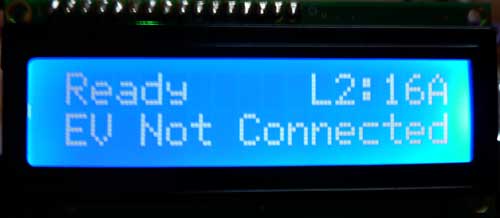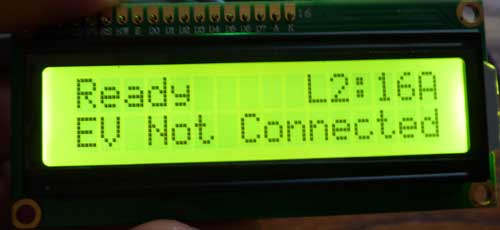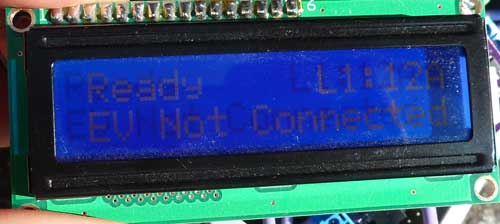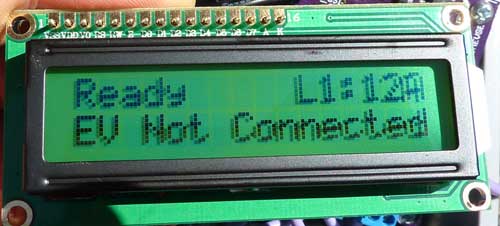HD44780-compatible 16×2 LCD’s are cheap (<$4), and easy to use with Arduino via the LiquidCrystal library. To reduce the pin count considerably, the Adafruit LCD backpack is a nice little add-on that converts them to work via a two-wire I2C or SPI interface.
I bought two types to compare for use with OpenEVSE and LeafCAN. One has white lettering over a blue background, and the other one has black lettering over a yellow background. Here is an indoor comparison:
My camera can’t take good photos of the blue LCD indoors. The blue background is actually a good bit darker than in the photo, and the contrast is much better than it appears. Factoring that in, I guess I would still give the yellow LCD a slight edge indoors.
Now, here they are outdoors, in direct sunlight:
Again, the blue LCD didn’t photograph well. It looked slightly better than depicted in the photo. However, it’s a clear win for the yellow LCD. It works as a reflective LCD in direct sunlight, with very high contrast.




Hey – I’m trying to compile openevse 5.0.1 with PCF support. I don’t see any document saying what to do. LCDRGB makes things even worse. First thing:
// if using I2CLCD_PCF8574 uncomment below line and comment out LiquidTWI2.h above
#include “./LiquidCrystal_I2C.h”
but there is no LiquidTWI2.h above in the code 🙁
Also I have changed openevse.h and replaced
#define RGBLCD
with
#define I2CLCD
I get some garbage on the LCD.
I have LiquidCrystal_PCF8574.h in my arduino and using it works fine.
Thanks.
open an issue on my github. this is the wrong place